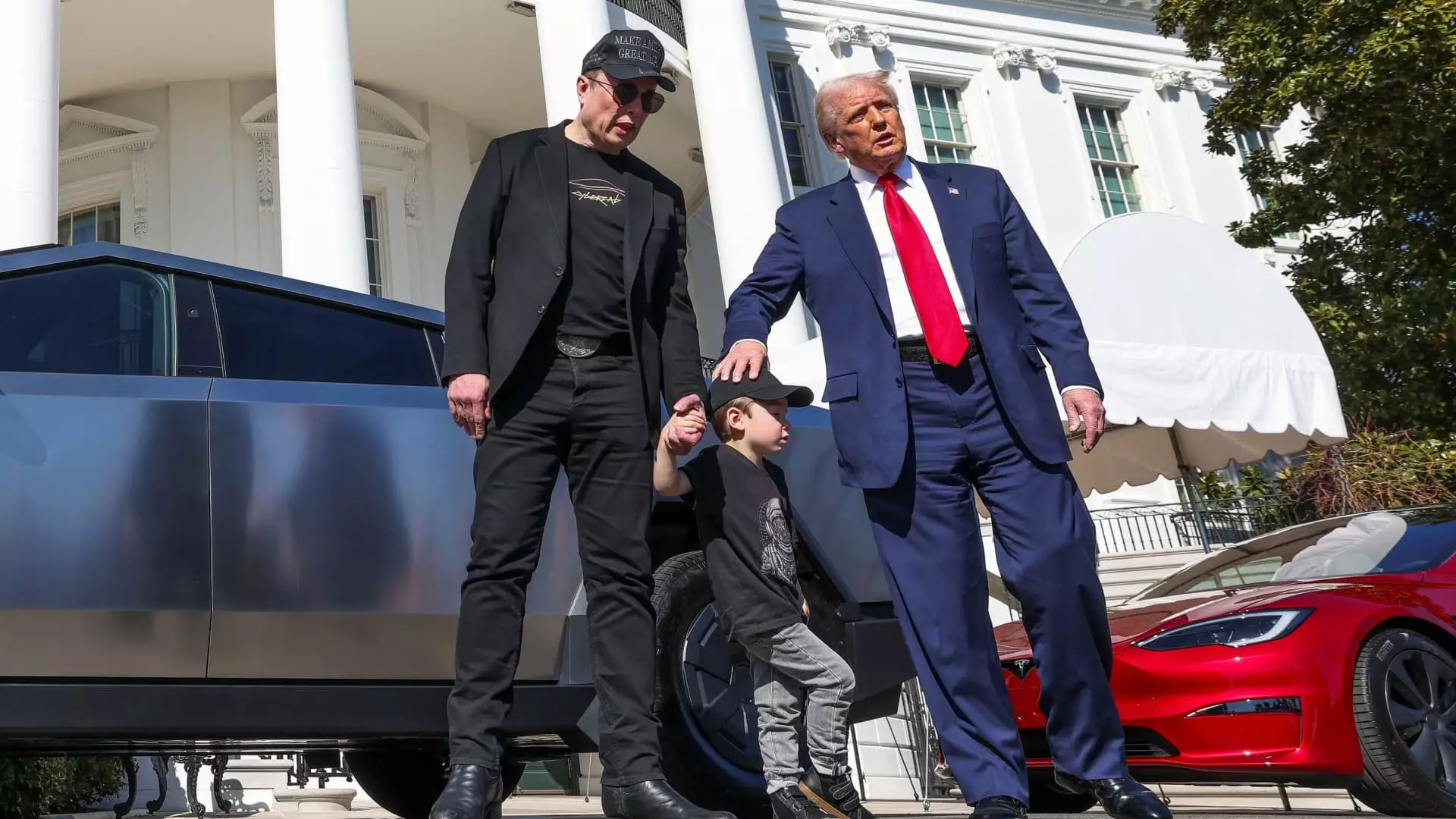Elon Musk, the head of Tesla Inc., recently articulated a view that surprisingly diverges from his usual unabashed support for the Trump administration. During Tesla’s first-quarter earnings call, Musk clearly expressed his discomfort with high and unpredictable tariffs, declaring that any decision on such matters ultimately resides with the President of the United States. While one might expect a steadfast loyalty to the administration’s economic strategies given Musk’s proximity to power, his remarks indicate a nuanced understanding of the complexities of international trade.
Musk’s perspective is notable, particularly as Tesla grapples with a significant downturn in its financial health—a stark 20% decline in automotive revenue and a staggering 71% plunge in net income. This volatility not only underscores the unpredictable nature of tariffs but also highlights how such policies can ripple through the economy in unexpected ways. Despite being characterized as a frontrunner due to its “localized supply chains” spread across key global markets, Tesla is still reeling from the effects of tariff-related uncertainties. This contradiction illustrates the vulnerability even the most agile and innovative companies face in a volatile economic landscape.
Localized Production: A Boon or a Band-Aid?
Musk claims that Tesla is the “least-affected car company” when it comes to tariffs. While there is some merit to this statement—Tesla’s capacity to produce domestically does mitigate exposure to Trump’s 25% tariff on imported vehicles—the reality is much more complicated. The company still relies heavily on a global supply chain for essential parts. Musk’s acknowledgment of sourcing materials from China, Mexico, and Canada paints a different picture that suggests even localized production can be fragile when broader trade relationships become precarious.
The notion of being the “most vertically integrated car company” rings hollow when considering Musk’s admission that he needs parts from all over the globe. The challenge of securing lithium iron phosphate (LFP) battery cells from foreign suppliers speaks volumes about the paradox of American ingenuity in the face of global interdependence. While Musk plans to ramp up local manufacturing of these crucial components, he candidly notes the limitations of current capabilities, reinforcing the idea that localization, while advantageous, is not a panacea for global tariff issues.
Musk vs. Navarro: The Clash of Economic Philosophies
One of the most striking moments from the earnings call comes when Musk disparages Peter Navarro, Trump’s trade adviser, calling him a “moron” and “dumber than a sack of bricks.” This personal attack is laden with significance; it reveals an internal rift between Musk and certain policy advisers of the administration. Despite Musk’s general allegiance to the administration, the tariff conundrum seems to be a sticky point, indicating that innovation and commerce often conflict with political allegiance.
Musk believes in a future where “predictable tariff structures” and “free trade” prevail. This stance reflects not merely personal ideology but a broader liberal economic philosophy that champions the reduction of barriers to trade as a means of promoting innovation and economic growth. The complexities of global trade relationships require a delicate balancing act, challenging the notion that protectionist policies yield sustainable benefits. Musk’s comments underscore a critical aspect of economic success: that it thrives in environments where risk and opportunity are not stifled by arbitrary restrictions.
The Bigger Picture: Tariffs and the Future of Innovation
As Musk delves deeper into the challenges posed by tariffs, the narrative expands beyond Tesla to encapsulate the broader impact of government policies on innovation. Tariffs often act as a double-edged sword; while they are occasionally positioned as protective measures for domestic industries, they can stifle inventive spirit and market competition. Industries that thrive on collaboration and the free flow of ideas often find themselves hindered when faced with barriers to crucial resources.
Musk’s foray into local production capabilities shows a commitment to resilience, but it’s one that raises questions about the future of American manufacturing. Will policymakers heed voices like Musk’s, advocating for free trade that can stimulate growth and job creation? Or will the landscape continue to be marred by political posturing that jeopardizes the very industries it aims to protect? The dialogue over tariffs represents a crucial juncture in which the decisions made today will either unleash or hinder the full potential of American innovation tomorrow.

